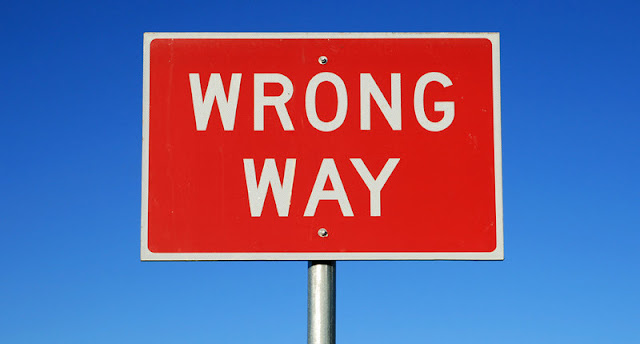
AG: Anything anybody got to say? That was one thing I wrote – that haiku about “all the answers are wrong”? I wrote Mike (sic) a haiku, if I can find it, that he thought was unfair
Student: (it was) unfair (because…)
AG: I had no idea it would have any effect at all. Let’s see if I can find it here. After having read from The Direct Path to Enlightenment, the moral, “Don’t strike at the heart”, in haiku, (I) wrote – “What a serious fellow/With beard and questions writ in copybook/Someday you’ll find out the answers are all wrong” – Just a minor thing. What’s wrong with all the answers being wrong? And why? What difference if the answers are right or wrong?
Student: (Well, I had) some questions (and then to) find out all the answers are wrong..
AG: (But) Having fun. Having fun either way – “Kerplunk! “. And the answers are wrong – like, kerplunk! – and the questions are wrong – like kerplunk! – (or the answers are right, maybe someday you’ll find the answers are right? – It doesn’t make a difference). I was just trying to.. (inject) a sense of humor.
Student: (It’s disheartening)…
AG: I suppose so. It was just on the deathbed, (we) find that…
Student: …disheartening) if you have something you’re unclear on, (and) you’re trying to understand, (and)…
AG: …your answers are wrong, not mine. It was even worse. I was just playing with you because you’re so serious. That’s why I said “all the answers are (wrong)”, because you’re so earnest and serious and almost attached to the seriousness, that things be right, that in itself requires cutting, maybe, or requires some kind of humor, or otherwise you’ll die of anxiety if the answers aren’t right.
Student: Why I like (to study)…
AG; Ah, you shouldn’t take it so seriously. I don’t think.. Study should be more light-hearted. Because, if you take it too seriously, then it means that you’re attached to there being an answer, and it is so, but there is no answer, I think (I mean no answer to..what?). It’s like Gertrude Stein on her deathbed – “What is the answer?” (and she said, “What is the question?”)
Student: (But) you could say that (about) all answers, even the most (carefully defined)?
AG: Um-hmm. Every answer I’ve ever had always turned out to be wrong. Life is a tragedy. It is. So if you accept it, (it) turns out. So, if everything’s tragic, you don’t have to worry about it anymore. You don’t have to worry about getting it right any longer<
Student: (So why) go ahead and ask the question (if you get the wong answer)?
AG: Well, a question and an answer is more of a personal play between people than it is right or wrong in some ultimate abstract sky. It’s just what you think now and what I think now. It’s just thought-forms, and what thought-form arises doesn’t necessarily have to be right. But it does rise. If that’s what rises, you’ve got (to accept it, as) the best you can do. But the best you can do isn’t enough, certainly, to make everything right, in some abstract sense. Maybe that’s too.. I was just being funny. Because you were being so serious. I thought [Allen to Students] – Doesn’t he seem too serious?
Students: (Yes/No)
AG: Everybody point at him!
I’m sorry I haven’t had more time to be personal or to look at everybody’s poetry (including (especially, that of) the credit students), I’m just over-worked! I did as best (as) I could. The size of the class makes it impossible for me to do any more. On the credit students’ work – I passed it around to [Editorial note – his teaching assistant] Bob(by) Meyers, myself, some to Anne Waldman, and we all made little notes on it, as much as we could. Anything I liked, I underlined. I’m still looking over the credit students’ stuff and we’ll have to do all that tonight.. [to Student] (Yes,) You had your hand (raised)?
Student: Yeah. Did you come to the idea of teaching this class in poetry and meditation out of a feeling that there was some conflict before between the two, or (as) an elaboration of something you already thought?
AG: I never thought there was a conflict
Student: Never
AG: I grew to maturity with Gary Snyder and Philip Whalen. They never had no conflict – or (Jack) Kerouac. There is, among the Buddhists, very often, the puritanical Buddhists, a misconception that there’s some conflict (probably because their original motive for writing was “egotistical” or something – and then, when that fails, when confidence in ego fails, then there’s a disillusionment with writing because you can’t be a hero with it anymore). But the style of (William Carlos) Williams’ writing was not to be a hero, it was simply to look directly at something (which is the same thing as meditation). So, if the basis is to look directly at things rather than to make pretty art, to be a hero of art, then there’s no conflict…
tape and class end here

